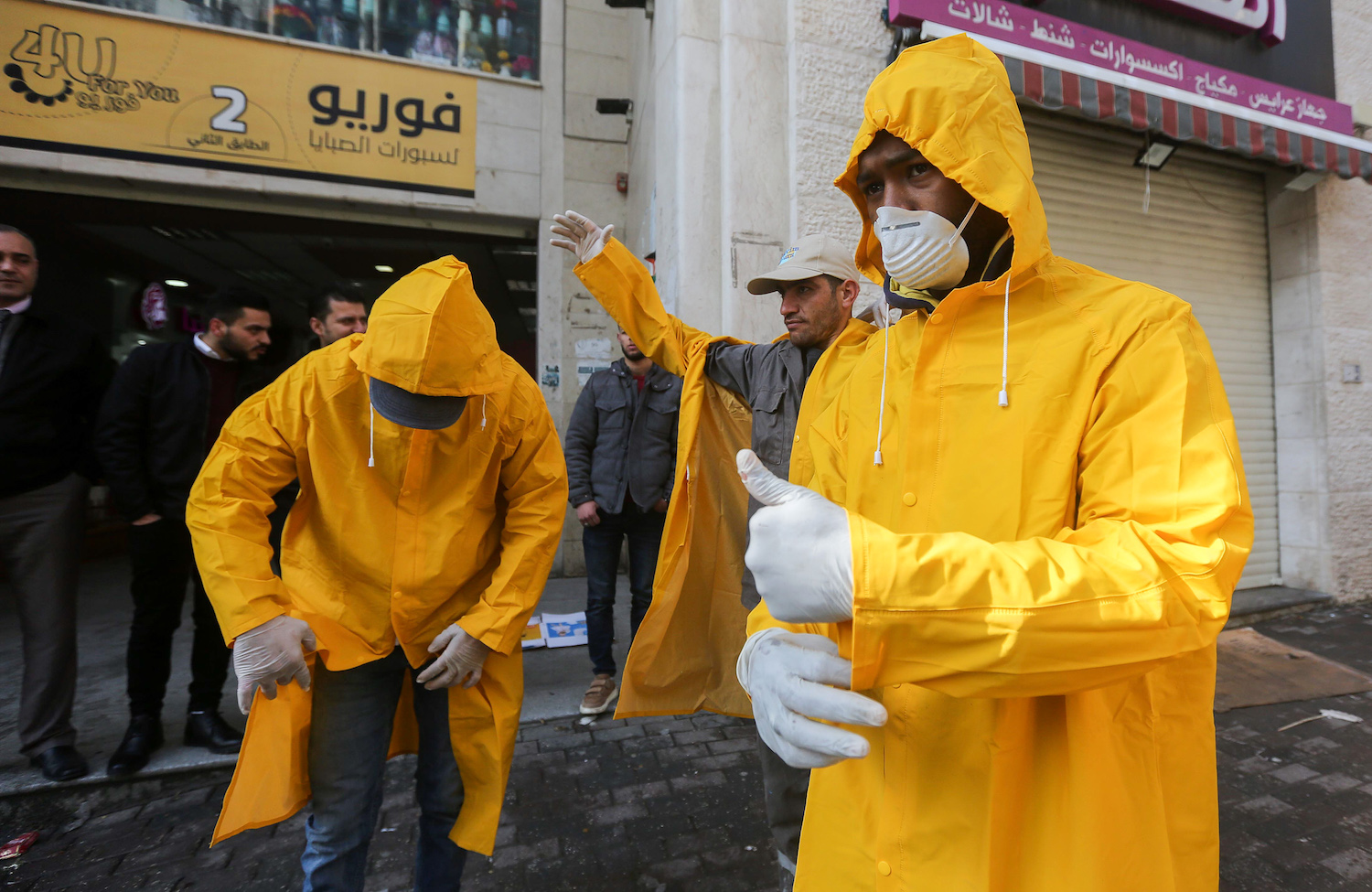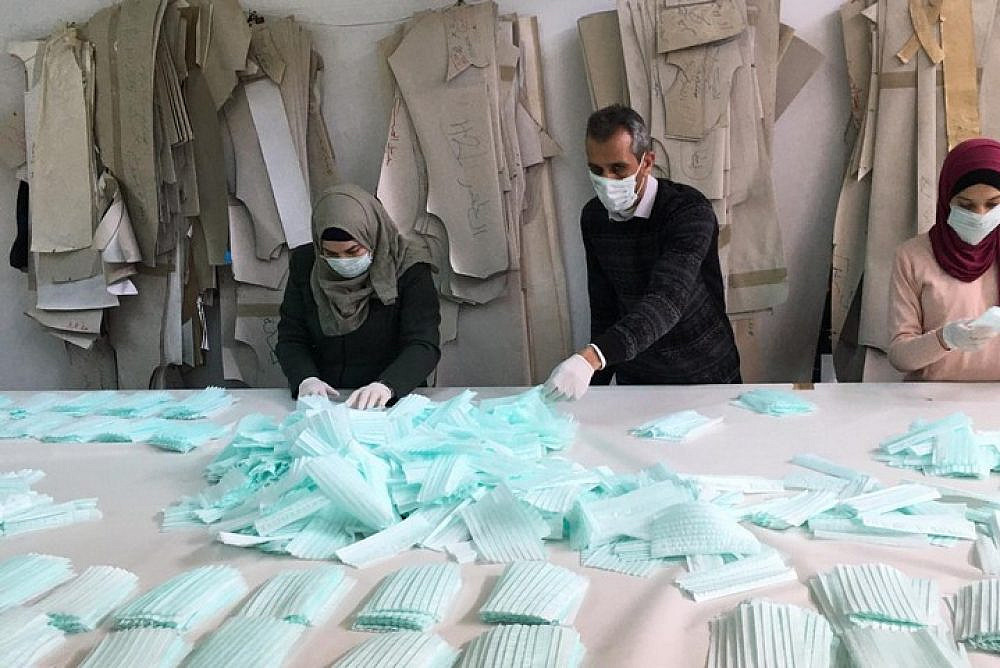Two days after the outbreak of the novel coronavirus in Bethlehem, Amjad Zaghir, a shoe factory owner from the Palestinian city of Hebron, realized the West Bank would soon run out of face masks. Less than three weeks later, he is now the only mask manufacturer there.
Zaghir’s factory, which he started overnight, now produces thousands of masks a day, and has made him a national hero for helping Palestinians protect themselves from the virus.
Zaghir got to work as soon as news broke of the first diagnosed cases of COVID-19 in Bethlehem. He bought a mask and began studying it, tilting it left and right.
He initially thought he could recreate it with some of the materials he uses in shoemaking. “I approached my friend, a pharmacist, and asked him what materials are used to make masks,” recalled Zaghir. “He explained that what we use in shoemaking is unsuitable, and pointed me in the right direction.”
Zaghir then began looking for the right fabric around Hebron. He came across a vendor who had purchased the material from Turkey a year ago, but left it unused, because it was cheaper to import masks from China than produce them in Hebron. Zaghir bought the fabric, which his pharmacist friend confirmed was the correct material.
“At first, I tried sewing the masks using the same machine we use to sew shoes. But that attempt was unsuccessful because the fabric for the masks was too thin and easily ripped apart,” said Zaghir. “I tried to iron the fabric to create the folds, but I ended up burning it.”
Zaghir then tried ironing it at a dry cleaner. That failed as well, he said — the delicate fabric could not withstand the high heat.
But Zaghir did not give up — especially when he got word that the masks were running out in the West Bank, and that this could be a golden opportunity. As a descendant of a family of merchants who inherited the shoemaking trade from his great-grandfather, the 30-year-old had a good sense of business.
It was not simply profit that motivated him, though. “This is about helping my people, and a way of providing work opportunities,” he said. “There’s a crisis in Hebron, and many are unemployed.”
Zaghir traveled across the city, consulting with sewing workshops and pharmacists. Eventually, he discovered there was a machine in the city that can fold the masks while ironing them. To moderate the heat levels at 400 degrees Celsius, he sandwiched the masks between layers of paper. The experiment worked.
“On the first day, I managed to create only 500 masks,” he said. “The next day, I made 1,000 more. I then brought 20 workers to increase production.”

The name of the factory is Zaghir, which means “small” in Arabic. And while the factory itself may indeed be small, it has become the first and only business of its kind in Palestine, manufacturing between 7,000 to 9,000 masks a day.
Zaghir is not satisfied with the quantities, though. Starting next week, he has plans to expand production even more to keep up with demand. He has already found an empty workshop, which he will soon staff, he added.
The masks have been selling faster than hotcakes, said Zaghir. He is selling them to government employees, hospitals, even Palestinian police; on Saturday alone, he supplied 5,000 masks to police in Nablus. To these official institutions, he sells the masks at a symbolic cost of NIS 1.50 per unit — a price determined by Hebron’s governor. To pharmacies and other vendors, the rate is different.
“I started receiving requests from Jordan, Kuwait, the Gulf countries, and Canada,” he said. “Even Israeli sellers have reached out to me to buy my masks, but I don’t have enough workers. I wish I could supply everyone.”
The material Zaghir has been using will soon run out, however. He has already ordered more, but countries have been closing off their borders to contain the spread of the coronavirus. The pandemic has also reached Turkey, where the material is set to be exported from.
But Zaghir is unperturbed. “I am confident I will be able to bring in the materials. I contacted the Palestinian Chamber of Commerce, and they in turn appealed to the Israeli Chamber of Commerce, which then contacted customs and other authorities on this issue,” he said. “This is a health crisis, a global pandemic, a state of emergency. It’s not business as usual, which is why I am quite confident they will let me import the goods.”
Zaghir believes that in a week’s time, he will be able to produce 100,000 masks a day. “Today, I tried a new sewing technique which proved to be successful, and we made 15,000 masks. This is the largest ever since we started production,” he said. “My mask is unique, it is unlike any other in the world. Whoever comes across this mask will immediately know it’s made in al-Khalil (Hebron),” he added.
A version of this article was first published in Hebrew on Local Call. Read it here.


